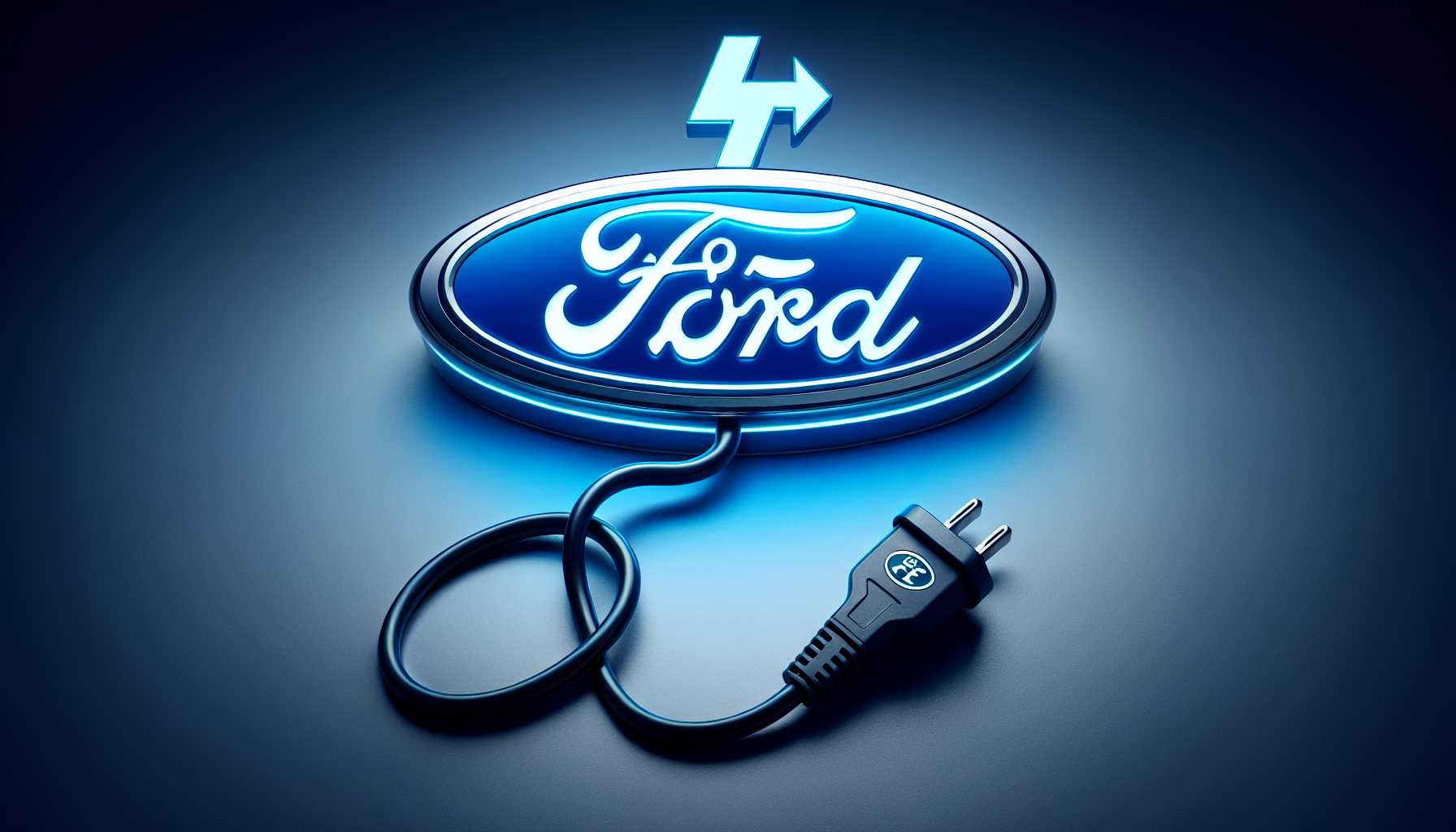 In the electrifying saga of the automotive industry’s shift towards sustainability, a plot twist emerges. Ford Motor Company, famed for its robust F-150 Lightning and intriguing Mustang Mach-E, has pumped the brakes on its grand $16 billion electric vehicle (EV) crusade. Meanwhile, Tesla, with its innovative prowess, continues its electric sprint unabated. As a product manager and tech writer, I’ll delve into the currents powering these moves and spell out what this could mean for carmakers and consumers alike. Buckle up, because we’re taking a wild ride through the twists and turns of the EV marketplace that could redefine the future of transportation.
In the electrifying saga of the automotive industry’s shift towards sustainability, a plot twist emerges. Ford Motor Company, famed for its robust F-150 Lightning and intriguing Mustang Mach-E, has pumped the brakes on its grand $16 billion electric vehicle (EV) crusade. Meanwhile, Tesla, with its innovative prowess, continues its electric sprint unabated. As a product manager and tech writer, I’ll delve into the currents powering these moves and spell out what this could mean for carmakers and consumers alike. Buckle up, because we’re taking a wild ride through the twists and turns of the EV marketplace that could redefine the future of transportation.
The Spark Before the Stall: Ford’s EV Enthusiasm Hits A Detour
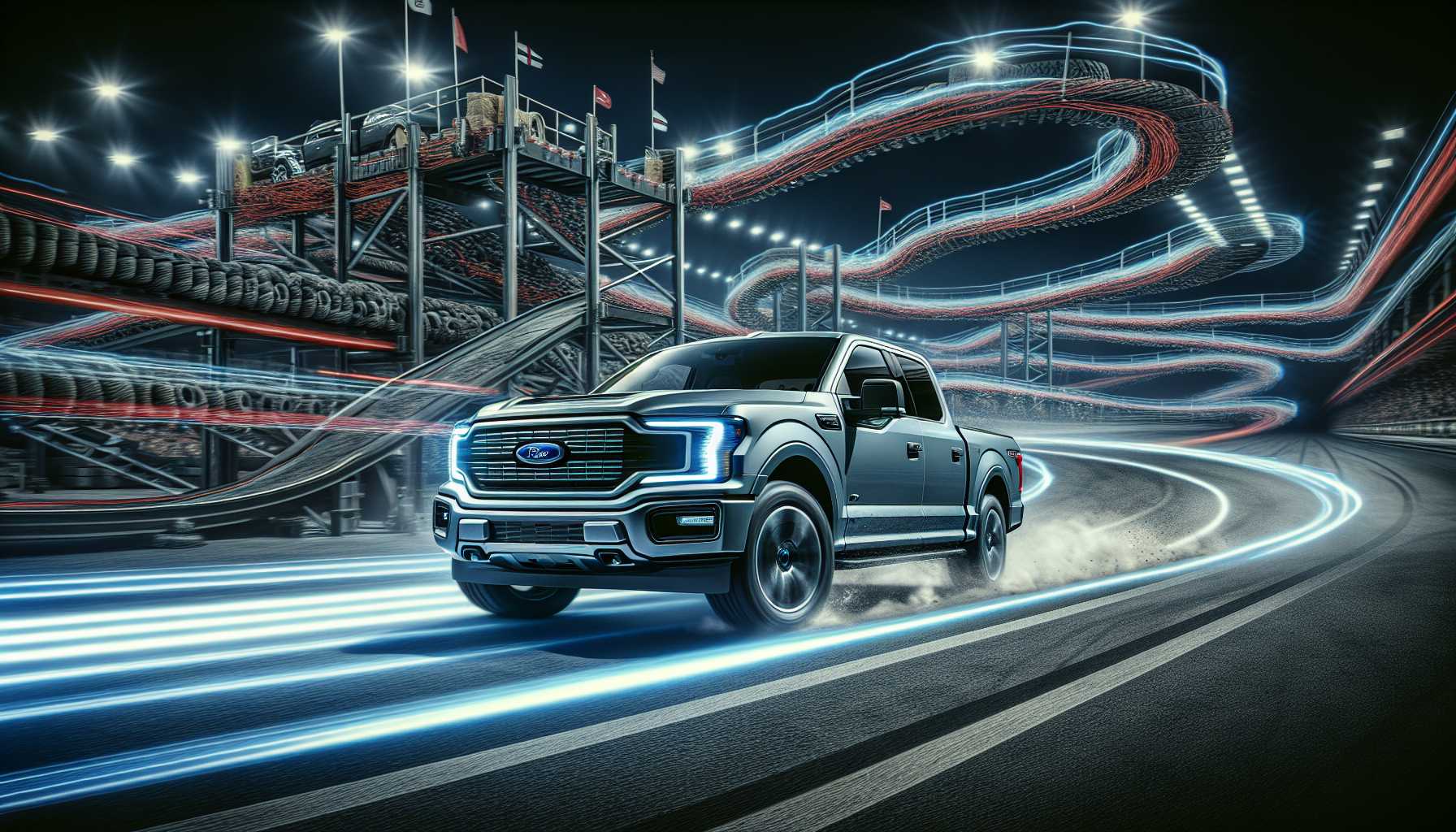 Ford’s journey into the electric landscape appeared as flashy as the chrome on its beloved trucks. However, a shadow now falls across the automaker’s ambitious electric roads. Ford’s CFO, John Lawler, announced a downshift in their starry-eyed EV investment plans. Around $12 billion set aside for electric dreams is being put on hold as they scale back production at their Marshall, Michigan plant, lessening their dive into inverter and motor capacity while pulling the reins on integration projects. The auto giant’s recalibration mirrors a broader industry trend where hybrids, rather than fully electric models, are whispering sweet economic sense into the ears of decision-makers. Despite taking home silver in the U.S. EV sales race, Ford’s lineup remains predominantly fueled by gasoline’s combustion ballet. It’s an intriguing turn of events, signaling a potential lapse in faith or reevaluation of EVs’ immediate future within Ford’s strategy.
Ford’s journey into the electric landscape appeared as flashy as the chrome on its beloved trucks. However, a shadow now falls across the automaker’s ambitious electric roads. Ford’s CFO, John Lawler, announced a downshift in their starry-eyed EV investment plans. Around $12 billion set aside for electric dreams is being put on hold as they scale back production at their Marshall, Michigan plant, lessening their dive into inverter and motor capacity while pulling the reins on integration projects. The auto giant’s recalibration mirrors a broader industry trend where hybrids, rather than fully electric models, are whispering sweet economic sense into the ears of decision-makers. Despite taking home silver in the U.S. EV sales race, Ford’s lineup remains predominantly fueled by gasoline’s combustion ballet. It’s an intriguing turn of events, signaling a potential lapse in faith or reevaluation of EVs’ immediate future within Ford’s strategy.
Pivot to Hybrids: A Shrewd Maneuver or a Step Back?
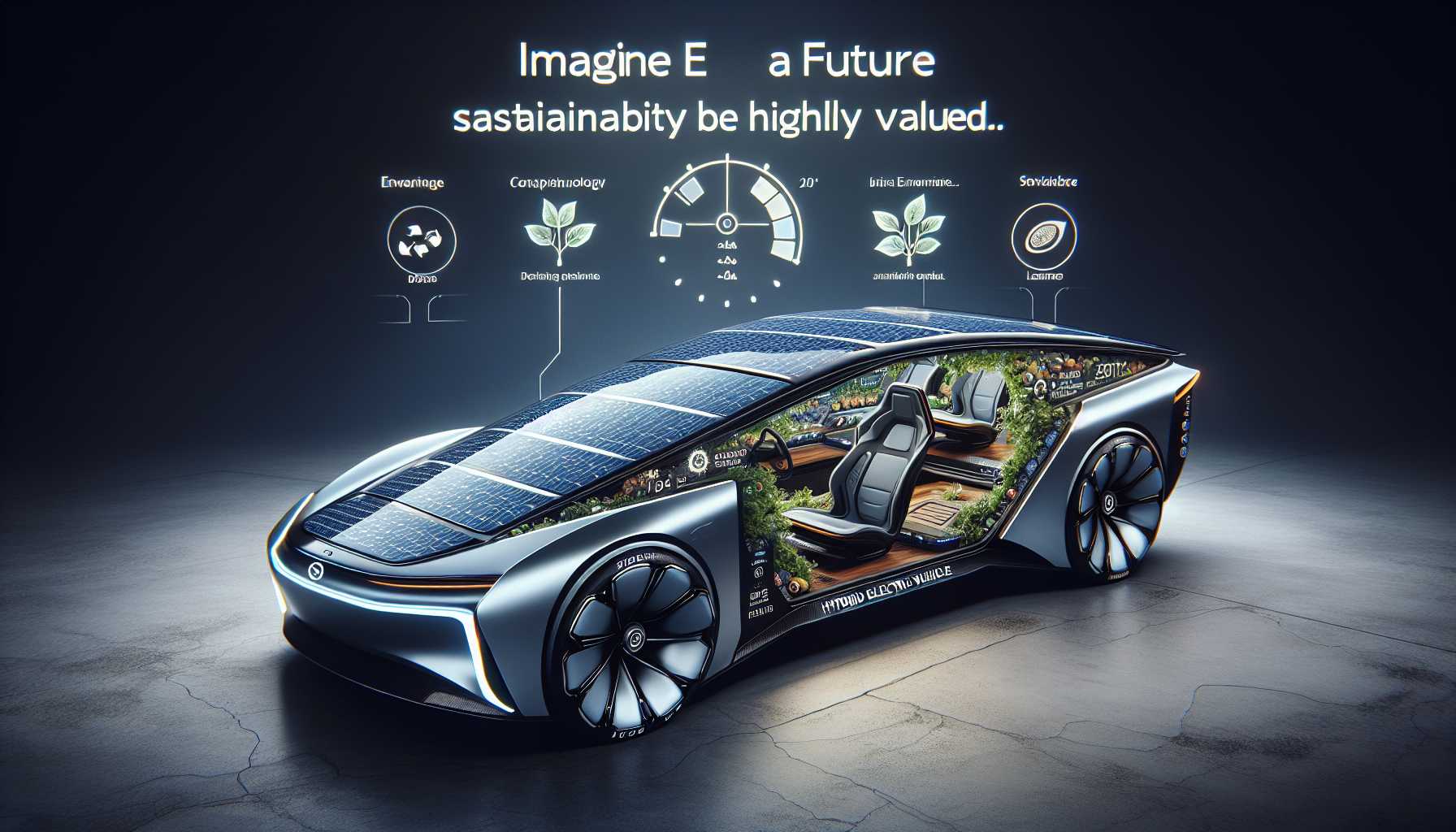 Other legacy automakers are also executing balletic pirouettes towards hybrid vehicles. Toyota, another juggernaut, wielded its own pair of strategic scissors, slashing its EV forecast by nearly 40% and hitching its wagon to hybrid and plug-in hybrid electric vehicles. This pivot suggests a tactical retreat from the EV market’s frontline, primarily dominated by more daring entities like Tesla. Ford and Toyota aren’t outliers in this hybrid hoopla. General Motors Co. and Honda Motor Co. have also reportedly hit the pause button, recalibrating their electric avenues. This industry-wide hesitation raises the question: Are they strategically maneuvering for better position, or are they simply unable to keep up with the electrifying pace set by Tesla and others?
Other legacy automakers are also executing balletic pirouettes towards hybrid vehicles. Toyota, another juggernaut, wielded its own pair of strategic scissors, slashing its EV forecast by nearly 40% and hitching its wagon to hybrid and plug-in hybrid electric vehicles. This pivot suggests a tactical retreat from the EV market’s frontline, primarily dominated by more daring entities like Tesla. Ford and Toyota aren’t outliers in this hybrid hoopla. General Motors Co. and Honda Motor Co. have also reportedly hit the pause button, recalibrating their electric avenues. This industry-wide hesitation raises the question: Are they strategically maneuvering for better position, or are they simply unable to keep up with the electrifying pace set by Tesla and others?
EV Market: A High-Speed Chase with Tesla Leading the Pack
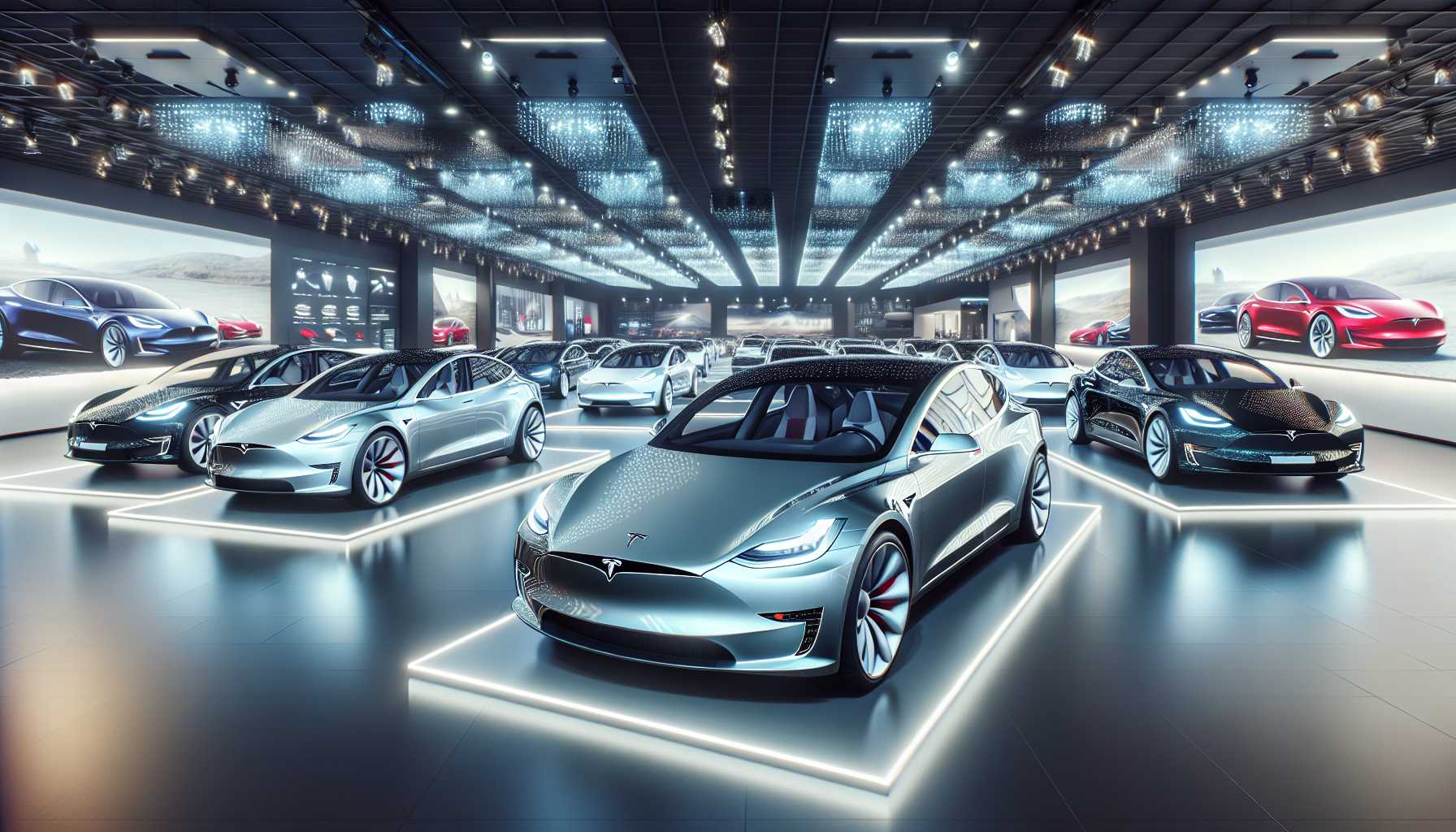 Despite the hesitations of certain traditional carmakers, the global EV stage is abuzz with growth and excitement. Projections gleam with optimism, anticipating a 35% sales increase in EVs worldwide this year, with the U.S. market potentially roaring to a 50% surge. Players like Tesla, Rivian, and BYD are jockeying for position, wielding competitive pricing and sharp features to wrestle away market share. Tesla, the herald of the electric revolution, persists with its assertive sales and marketing rhythms. By revising pricing strategies and promoting accessible electric stewardship, Tesla has succeeded in retaining a significant chunk of the EV spotlight, despite feeling the hot breath of competition on its neck.
Despite the hesitations of certain traditional carmakers, the global EV stage is abuzz with growth and excitement. Projections gleam with optimism, anticipating a 35% sales increase in EVs worldwide this year, with the U.S. market potentially roaring to a 50% surge. Players like Tesla, Rivian, and BYD are jockeying for position, wielding competitive pricing and sharp features to wrestle away market share. Tesla, the herald of the electric revolution, persists with its assertive sales and marketing rhythms. By revising pricing strategies and promoting accessible electric stewardship, Tesla has succeeded in retaining a significant chunk of the EV spotlight, despite feeling the hot breath of competition on its neck.
EV Startups: Driving into the Future with Fresh Vision
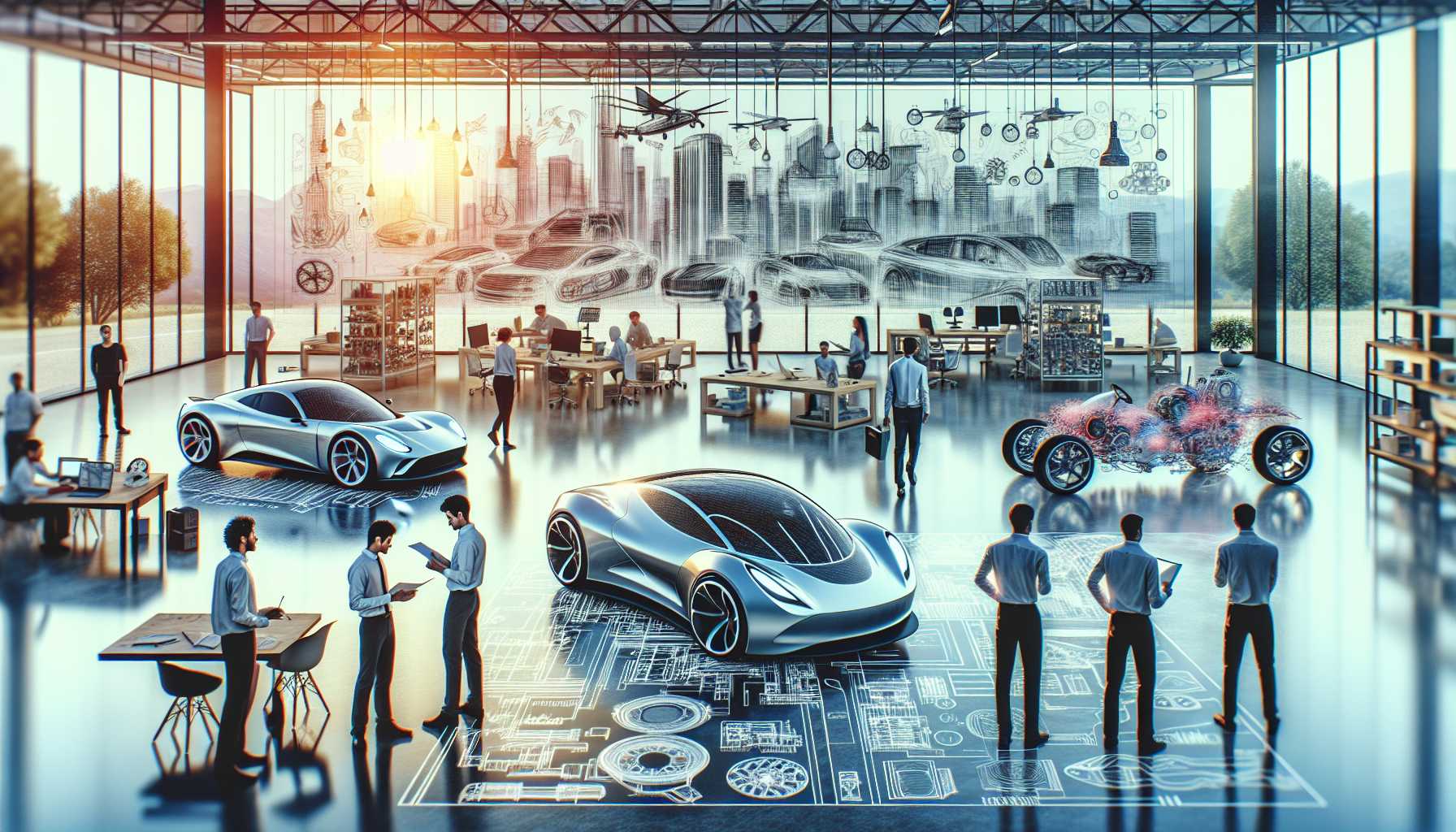 While traditional automakers may be pumping the brakes or cautiously feathering the throttle, the startup scene in the EV space is buzzing with the high-torque acceleration of fresh excitement and innovation. Lucid Motors, Rivian—and let’s not forget the Chinese contenders like BYD and Nio—are cutting a clear path through the automotive thicket with their focus on sustainability and the allure of ESG (Environmental, Social, and Governance) issues. Their positioning as champions of a greener future resonates deeply, especially in the U.S. where the throttle on environmental solutions is being pushed to the floor. It sets up an interesting dynamic: Can traditional automakers catch up and integrate the nimble, software-centric mindset that these greenfield players exhibit as second nature?
While traditional automakers may be pumping the brakes or cautiously feathering the throttle, the startup scene in the EV space is buzzing with the high-torque acceleration of fresh excitement and innovation. Lucid Motors, Rivian—and let’s not forget the Chinese contenders like BYD and Nio—are cutting a clear path through the automotive thicket with their focus on sustainability and the allure of ESG (Environmental, Social, and Governance) issues. Their positioning as champions of a greener future resonates deeply, especially in the U.S. where the throttle on environmental solutions is being pushed to the floor. It sets up an interesting dynamic: Can traditional automakers catch up and integrate the nimble, software-centric mindset that these greenfield players exhibit as second nature?
Tesla’s Software Supremacy: A New Chapter for Automotive Design
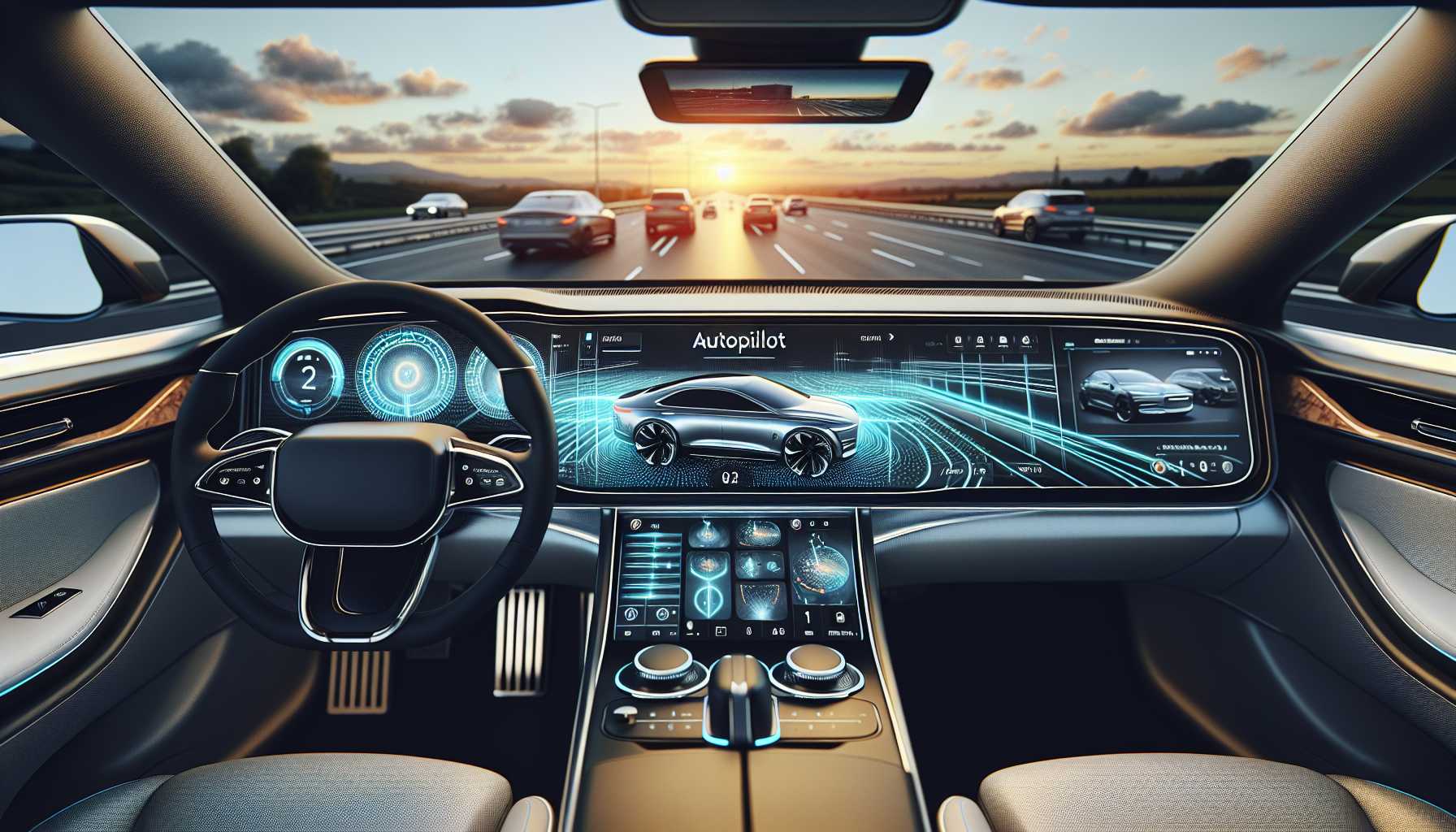 Tesla’s not just another EV manufacturer; it’s a technology company on wheels. Its vehicles are as much about processors and pixels as they are about pistons and axles. Features like the infotainment system, over-the-air updates, and the Autopilot driver-assistance tech have pulled ahead of the pack, setting a daunting pace for traditional automakers. They’re forced to morph from masters of metal and combustion to conjurers of code and IoT—no small feat in an industry that prized mechanical prowess over bits and bytes for over a century.
Tesla’s not just another EV manufacturer; it’s a technology company on wheels. Its vehicles are as much about processors and pixels as they are about pistons and axles. Features like the infotainment system, over-the-air updates, and the Autopilot driver-assistance tech have pulled ahead of the pack, setting a daunting pace for traditional automakers. They’re forced to morph from masters of metal and combustion to conjurers of code and IoT—no small feat in an industry that prized mechanical prowess over bits and bytes for over a century.
Conclusion: Charging into an Uncharted Future
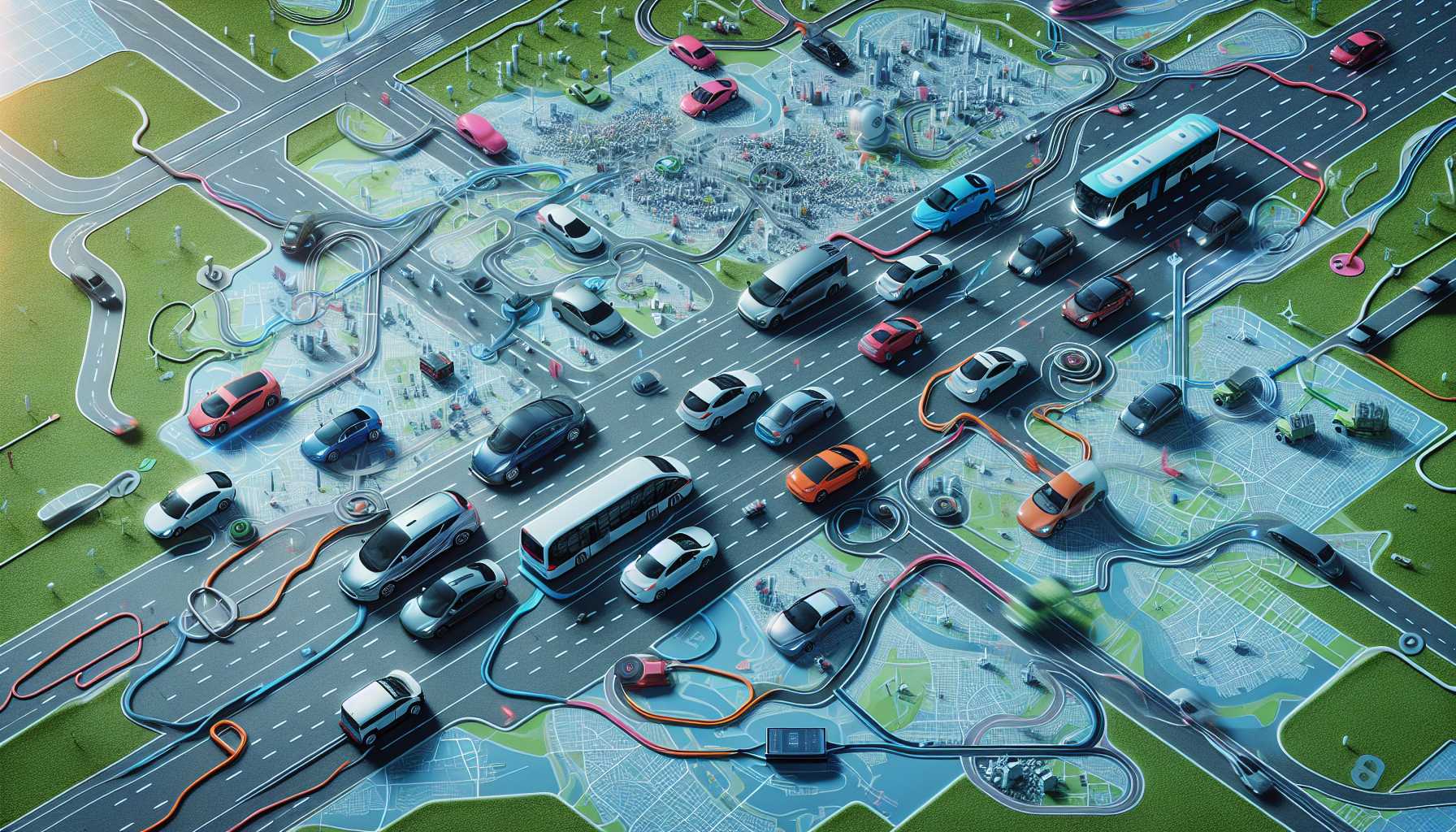 Ford’s recalibration and Tesla’s momentum signify more than a mere squabble over market shares. They reveal an industry in metamorphosis, where the combustion engine’s roar gives way to the quiet hum of electric motors. As a tech watcher and enthusiast, I can’t help but be intrigued by the possibilities. Will Ford’s EV retreat be recorded as a missed opportunity or a strategic pitstop on the way to success? Only time will tell. But rest assured, the appetite for innovation and green solutions is as unyielding as the lithium in EV batteries. As investors, consumers, and the eternally curious, we would do well to keep our eyes on the swiftly evolving landscape of the auto industry—it’s sure to be an electrifying ride.
Ford’s recalibration and Tesla’s momentum signify more than a mere squabble over market shares. They reveal an industry in metamorphosis, where the combustion engine’s roar gives way to the quiet hum of electric motors. As a tech watcher and enthusiast, I can’t help but be intrigued by the possibilities. Will Ford’s EV retreat be recorded as a missed opportunity or a strategic pitstop on the way to success? Only time will tell. But rest assured, the appetite for innovation and green solutions is as unyielding as the lithium in EV batteries. As investors, consumers, and the eternally curious, we would do well to keep our eyes on the swiftly evolving landscape of the auto industry—it’s sure to be an electrifying ride.







